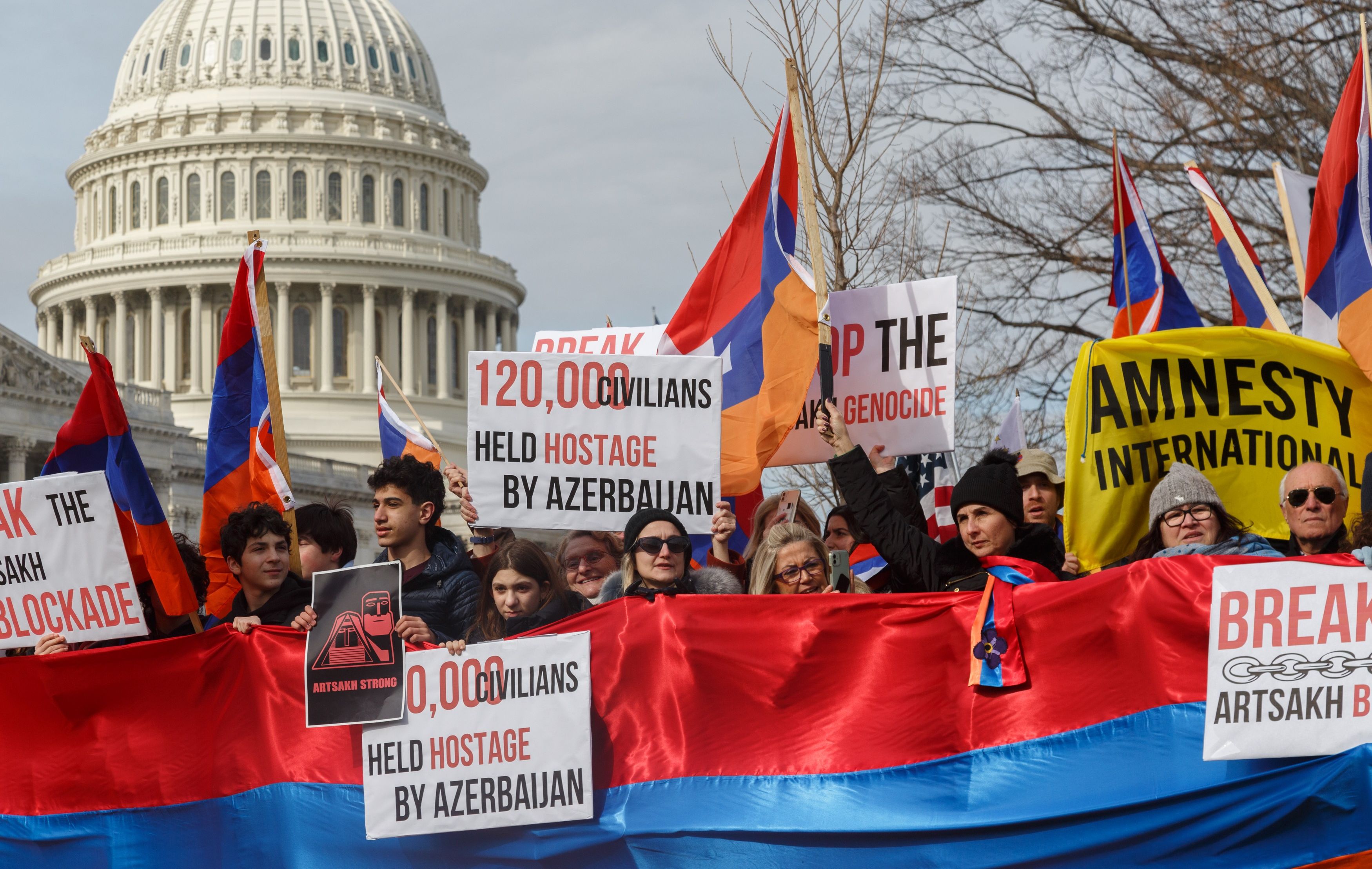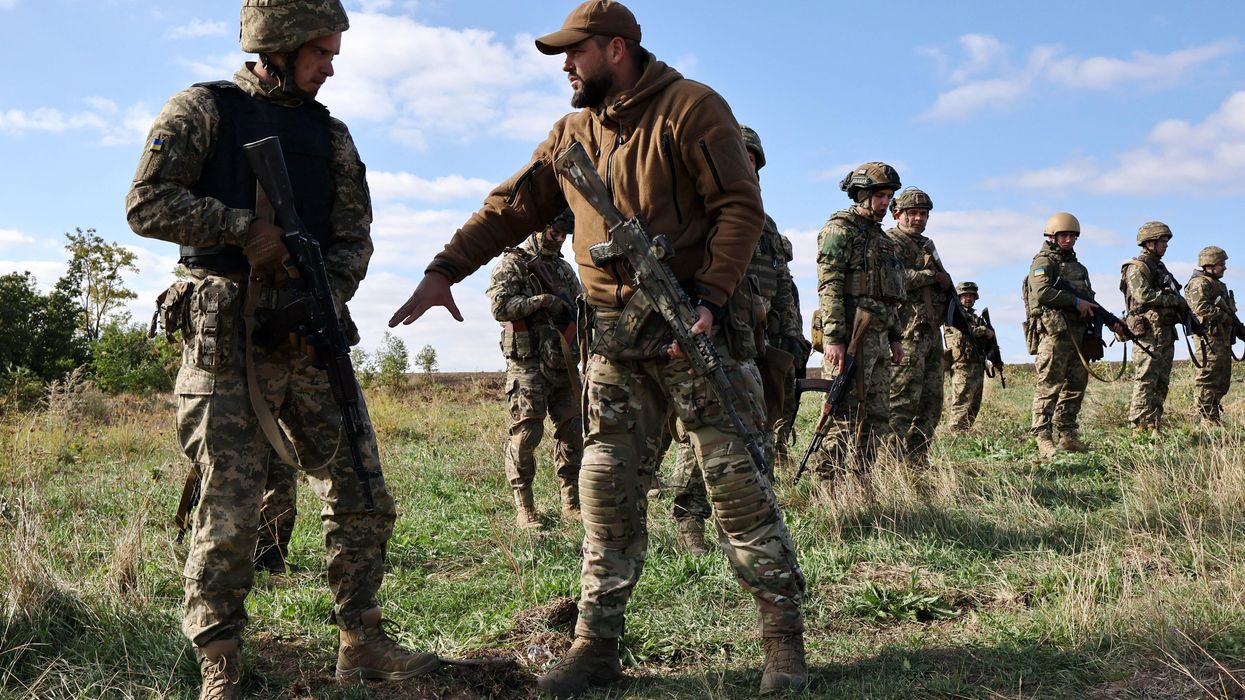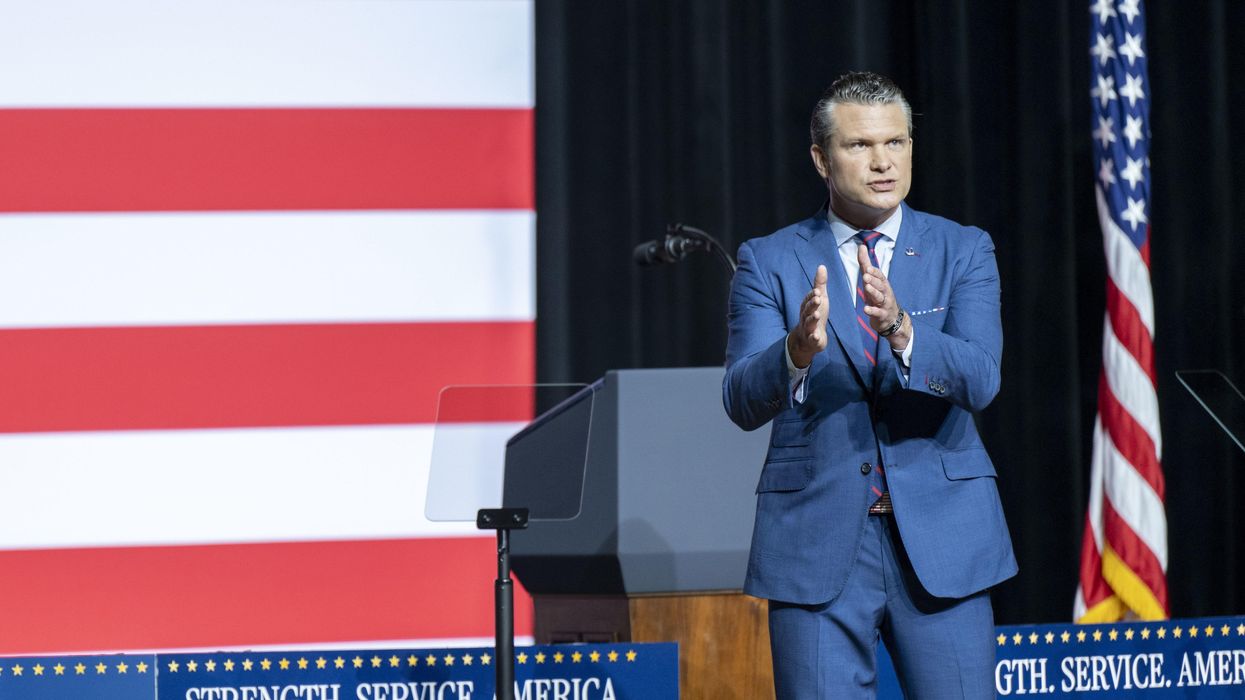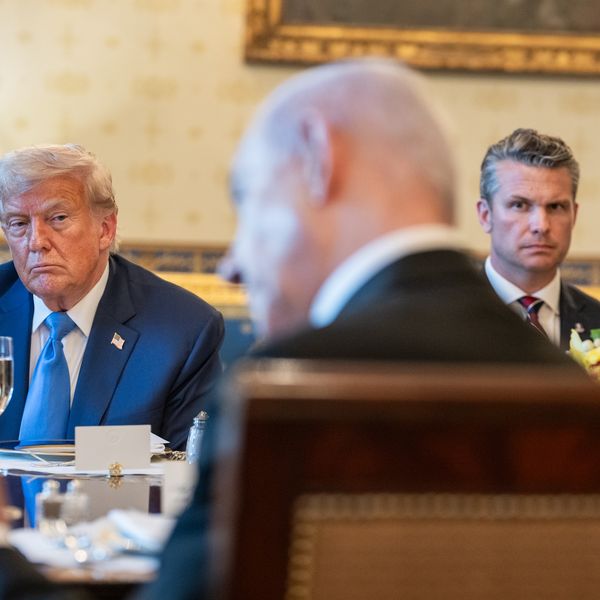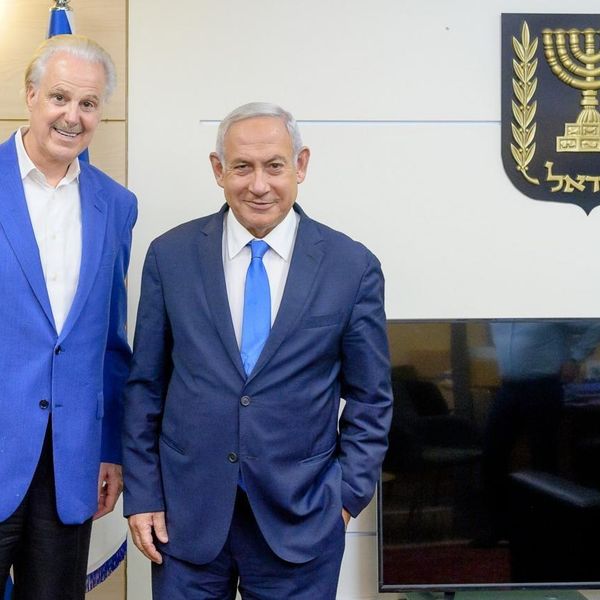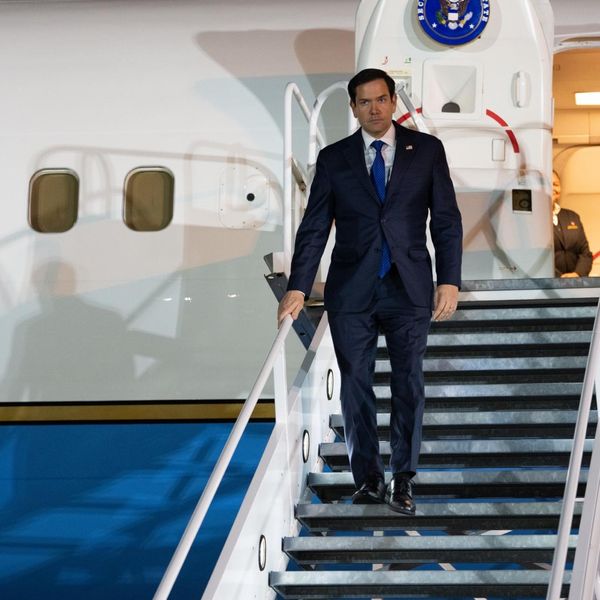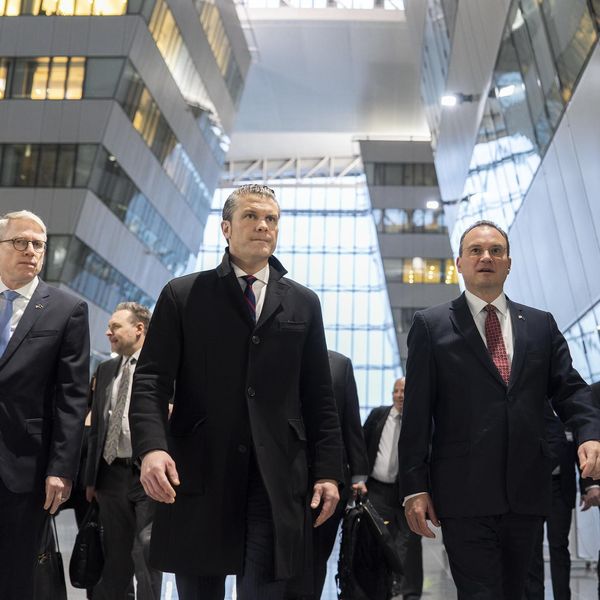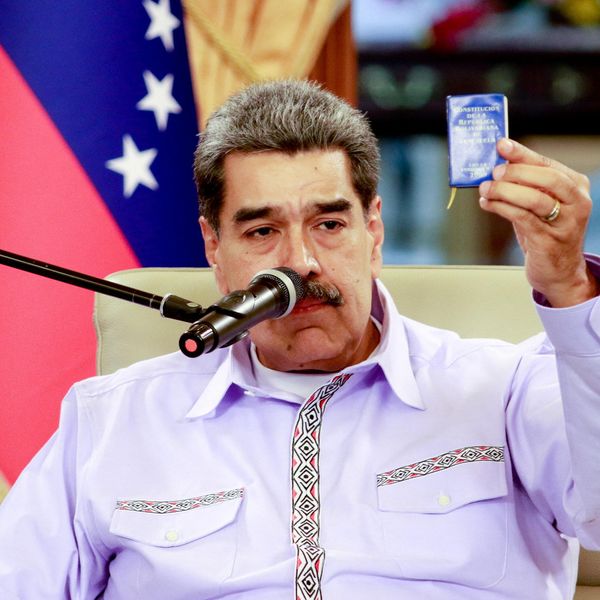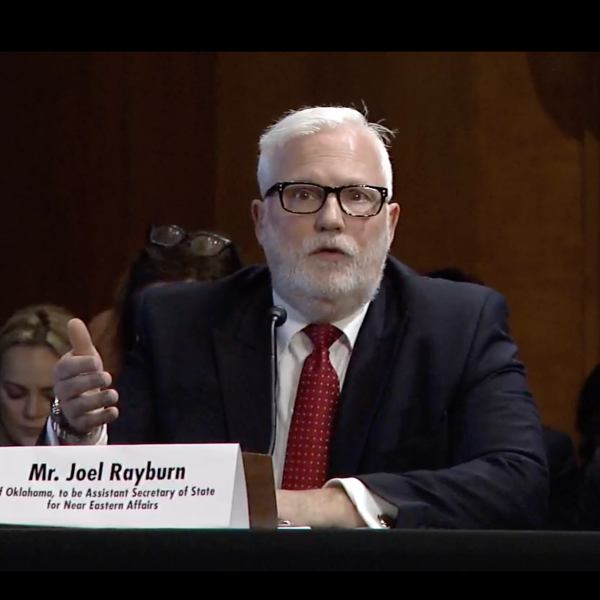Senate Foreign Relations Committee chair Sen. Ben Cardin (D-Md.) recently sent a letter to Secretary of State Antony Blinken urging him to get tougher on Azerbaijan for its “brazen campaign of ethnic cleansing in Nagorno-Karabakh.”
This follows an earlier statement from Cardin, shortly after Azerbaijan’s September “lightning offensive” against Nagorno-Karabakh, that called for the U.S. to “halt security assistance to Azerbaijan,” and increase humanitarian support for the 100,000 ethnic Armenians who fled en masse from Nagorno-Karabakh.
As of this writing, neither of those things has occurred and the Biden administration has done little to address Azerbaijan’s military aggression. While there are undoubtedly myriad reasons for the U.S. government’s lukewarm response, one possible explanation is one of Washington’s oldest pastimes: lobbying. For years, the Azerbaijan government has been financing a well connected lobbying and influence operation in the U.S. that has worked diligently to keep U.S. military assistance flowing and to ensure that policymakers turn a blind-eye to the country’s consistent human rights violations.
As documented in a just released Quincy Institute brief, The Lobbying Battle for Nagorno-Karabakh, the government of Azerbaijan has spent millions of dollars on registered lobbyists and much more on illicit influence operations that have helped foster and maintain support for Baku across Europe and the U.S.
The End of Nagorno-Karabakh
“The United States will not countenance any action or effort – short-term or long-term – to ethnically cleanse or commit other atrocities against the Armenian population of Nagorno-Karabakh,” was an assurance from then-Acting Assistant Secretary of State for European Affairs Yuri Kim in testimony to the Senate Foreign Relations Committee on September 14.
Just five days later, the U.S. did exactly what Kim said it would not, standing idly by on September 19 as Azerbaijan launched an “anti-terrorist” operation against what remained of Armenian Nagorno-Karabakh, leading to the ethnic cleansing of over 100,000 of its residents as they fled to the neighboring Republic of Armenia.
The territorial dispute over Nagorno-Karabakh — the mountainous breakaway region internationally recognized as part of Azerbaijan but self-governed by Armenians — now appears over as the de facto officials announced that all institutions will be dissolved on January 1, 2024. These developments followed what had been a year of Azerbaijani escalation against Nagorno-Karabakh and Armenia proper, including an Azerbaijani blockade of Nagorno-Karabakh which lasted almost 10 months and saw the territory’s food, medical, and energy supplies all but run out. When Baku launched its military assault, Washington and Brussels were only able to muster strongly worded statements, but no meaningful reaction.
The Azerbaijan Lobby
Don’t count out Azerbaijan’s influence operations in Washington for helping to thwart what should have been a stronger response on Capitol Hill and in the White House. The government of Azerbaijan has spent over $7 million on lobbying and public relations firms registered under the Foreign Agents Registration Act (FARA) since 2015, according to OpenSecrets. Chief among the Azerbaijan lobby’s hired guns is BGR Government Affairs, one of Washington’s top lobbying firms, which is contracted to serve as a liaison for the Azerbaijan Embassy in the U.S.
FARA filings reveal that the firm contacted congressional offices more than 1,000 times on Azerbaijan’s behalf in just the first half of 2023, and that their work included efforts “to ensure there were no negative Azerbaijan amendments on the National Defense Authorization Act” and “fair language for Azerbaijan” in the appropriations process. More generally, BGR “educated policymakers in Congress about the important role Azerbaijan plays as a key security partner of the United States.”
In 2018, BGR signed an agreement with another lobbying firm — Baker, Donelson, Bearman, Caldwell, and Berkowitz — to aid its efforts on behalf of the Azerbaijan Embassy. An analysis of that firm’s FARA filings shows that they’ve been laser focused on the State, Foreign Operations Subcommittee of the House Committee on Appropriations, which is responsible for, among many other issues, determining how much U.S. military assistance flows to Armenia and Azerbaijan.
Overall, it would seem both firms have been successful at allowing Azerbaijan to dodge criticism and continue to receive millions of dollars in security assistance every year.
Most notably in 2023,the Azerbaijan Embassy hired The Friedlander Group, whose namesake Ezra Friedlander has been a prominent American-Israeli lobbyist for years, rubbing shoulders with a number of top policymakers, including former President Donald Trump. When he was hired by Azerbaijan he immediately put his connections to work, according to his firm’s FARA filing, securing meetings with dozens of congressional offices, including even a face-to-face meeting with Senate Majority Leader Chuck Schumer (D-N.Y.).
This is just the tip of the iceberg for Azerbaijan’s influence operations in the U.S. As documented by the Organized Crime and Corruption Reporting Project (OCCRP), the Azerbaijan government has a history of laundering its influence in Europe and the U.S. The “Azerbaijani Laundromat,” as described by the OCCRP, was “a complex money-laundering operation and slush fund that handled $2.9 billion over a two-year period through four shell companies.” This 2012-2014 scheme which involved funneling government funds through shell companies, included payments to several pro-Azeri Americans, one of whom later pleaded guilty to concealing the fact that a congressional trip to Azerbaijan he’d helped organize was secretly funded by the State Oil Company of Azerbaijan Republic (SOCAR).
Azerbaijan’s often illicit influence operations in Europe have dubbed it “caviar diplomacy,” given the country’s repeated attempts to bribe European officials with all manner of luxury goods, including caviar. At least one investigation resulted in FBI agents raiding the home of the co-chair of the Congressional Azerbaijan Caucus, Henry Cuellar (D-Texas), in January 2022.
Armenian Influence in the US
Armenians have also sought to influence the U.S. public debate surrounding Nagorno-Karabakh. However, this has been done at a significantly smaller scale than their Azerbaijani counterparts, and the main actors of Armenian lobbying efforts in the U.S. have been the estimated one to two million diaspora Armenians in the U.S.
In the early 1990s, during the First Nagorno-Karabakh War, the Armenian diaspora in the U.S. achieved its first major political victory via Section 907 of the 1992 Freedom Support Act, which explicitly prohibited the vast majority of U.S. assistance from the Act to post-Soviet Azerbaijan until Baku “cease[es] all blockades and other offensive uses of force against Armenia and Nagorno-Karabakh.”
However, in 2002, as the “Global War on Terror” was heating up, Azerbaijan was granted a waiver for Section 907 that has allowed over $160 million of U.S. security assistance to flow to the country ever since.
Nevertheless, during the war in 2020, Armenians boycotted lobbying and PR firms working for Azerbaijan and, in 2021, President Joe Biden recognized the systemic mass killings of Armenians during World War I as genocide, a long-standing priority of the Armenian diaspora in the U.S. More recently the Senate unanimously passed the “Armenian Protection Act,” that would cut off aid to Azerbaijan for at least two years.
For Armenians, these developments are viewed as too little too late, however, as Azerbaijan has already achieved what it wanted in Nagorno-Karabakh with little international pushback. This result is likely due in no small part to Azerbaijan’s concerted influence operations in the U.S. For years, the lobbyists on Azerbaijan's payroll have worked to keep U.S. military assistance flowing to the country and to tip the scales of U.S. support in their favor.
While they may not have “won” this influence battle they have no doubt done enough to keep the U.S. on the sidelines of the Nagorno-Karabakh conflict.
Editor's Note: Artin Dersimonian was an intern at the Armenian Embassy in Washington in 2018. The Terjenian-Thomas Assembly Internship Program at the Armenian Assembly — which is mentioned in the QI brief on which this article is based — facilitated Dersimonian's internship with the embassy.
- After 30 years, Nagorno-Karabakh Republic vanishes ›
- Rep. Cuellar's indictment exposes Azerbaijani influence in Washington | Responsible Statecraft ›
- How Azerbaijan is 'peacewashing' its image ahead of COP 29 | Responsible Statecraft ›
- How to prevent the next Azerbaijan-Armenia war | Responsible Statecraft ›
- Report: Azeris demand lobbyists violate foreign agent law | Responsible Statecraft ›

